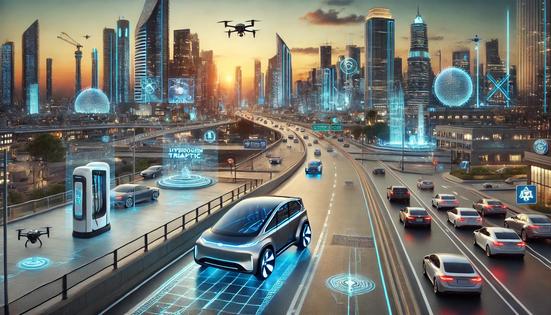The Future of Driving: How Emerging Technologies Are Transforming Cars
Published in Automotive News
The automotive industry is in the midst of a technological revolution, with automakers and tech companies racing to develop innovations that promise to make cars smarter, safer and more efficient. From autonomous driving to next-generation battery technology, the future of driving is closer than ever.
Autonomous Vehicles: The Road to Self-Driving Cars
Self-driving cars have been a major focus for automakers, with companies such as Tesla, Waymo and General Motors investing billions into the technology. While fully autonomous vehicles are not yet widely available, features like adaptive cruise control, lane-keeping assistance and automated parking are already common in modern cars.
Experts say that the widespread adoption of autonomous vehicles could reduce accidents caused by human error, but challenges remain. Regulatory approval, infrastructure updates and public trust will play a significant role in determining how quickly self-driving technology becomes mainstream.
Electric Vehicles and Battery Advancements
As the demand for electric vehicles grows, automakers are working to improve battery efficiency and charging speeds. Solid-state batteries, which promise higher energy density and faster charging times than traditional lithium-ion batteries, are in development by companies such as Toyota and Samsung.
“I believe the transition to solid-state batteries will be a game-changer for the industry,” said John Reynolds, an automotive engineer specializing in EV technology. “They will significantly extend range while reducing charging time.”
Vehicle Connectivity and Smart Features
Modern cars are becoming increasingly connected, offering advanced infotainment systems, over-the-air software updates and AI-powered personal assistants. Features such as real-time traffic navigation, predictive maintenance alerts and voice-controlled interfaces are making driving more intuitive.
Some automakers are even integrating vehicle-to-everything (V2X) communication, allowing cars to interact with traffic signals, other vehicles and road infrastructure to improve safety and traffic flow.
Hydrogen Fuel Cells: A Clean Alternative?
While battery-electric vehicles dominate the alternative fuel market, hydrogen fuel cell technology is gaining attention as a clean-energy solution. Companies such as Toyota and Hyundai continue to develop hydrogen-powered vehicles, which offer quick refueling times and zero emissions.
However, infrastructure remains a barrier. Hydrogen fueling stations are still limited, particularly outside of major urban centers. Until the refueling network expands, experts say hydrogen-powered cars will remain a niche option.
The Road Ahead
As technology continues to evolve, the cars of the future will look drastically different from those of today. Whether through self-driving capabilities, improved electric powertrains or smarter connectivity, innovation is set to redefine the driving experience.
This article was created in part using AI tools
The transition may take years, but one thing is clear: The future of the automotive industry is already in motion.








Comments